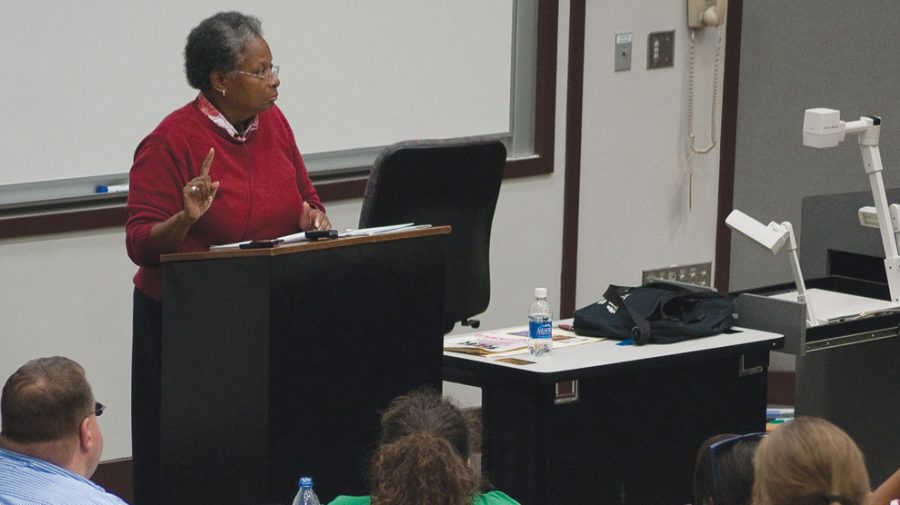The fight for equality on behalf of lesbian, gay, bisexual and transgender communities must incorporate other socially conscious groups to strengthen modern movements for social justice, said Mandy Carter, a 2005 Nobel Peace Prize nominee and black lesbian activist.
Carter led a discussion Monday at 7 p.m. in Mary Hewell Alston Hall titled “Justice or Just Us?”
She delivered her speech in honor of National Coming Out Day, an internationally observed awareness day for the LGBT communities.
She said the LGBT communities must network with other activist groups to encompass the diverse struggles for equality in modern society.
“We are [living] in our silos of trying to make change,” Carter said.
Carter delved into the historic social movements of the 1960s when gay and lesbian activists sought social equality, but she said the communities had to learn to bridge the divide between them despite the commonality of their objectives.
The 1978 assassination of Harvey Milk, the first openly gay man to be elected into public office in California, energized the gay and lesbian communities to cooperate in the advocacy of equal rights for both groups, she said.
Carter pointed to the contributions the white community made to the civil rights movement to underscore the importance of bridge building among communities.
“Black folks didn’t win the civil rights struggle all by themselves,” she said. “We don’t win if we don’t have allies.”
Carter said the state of Alabama has made great strides in social justice from the civil rights era to the present day.
Some evidence of progress can be seen in today’s presence of student groups that champion ideals of social justice on the very campus where Gov. George Wallace made his historic stand at Foster Auditorium to prevent black enrollment at the University, she said.
“The epicenter of the civil rights movement happened in this state and [also] on this campus,” she said. “Look where we are now. It is unbelievable.”
Carter said collaboration among activist groups can be cultivated if the groups can find common themes and goals to work towards together.
“The key is the fact that [groups can develop] one or two things in common that they can agree upon,” she said.
Michael Dewar, political chair for the LGBT student organization Spectrum and a senior majoring in biology, said Carter’s speech will inspire groups on the fringe to join the mainstream movements for social justice and equality.
Lauren Jacobs, inter-organizational chair for Spectrum, said Carter’s call for collaboration drew her attention to weaknesses in Spectrum’s group discussions and meetings.
“It shocked me to hear her say these things,” Jacobs said. “She made it sound so obvious, and it shocks me that we haven’t worked hard enough before.”









